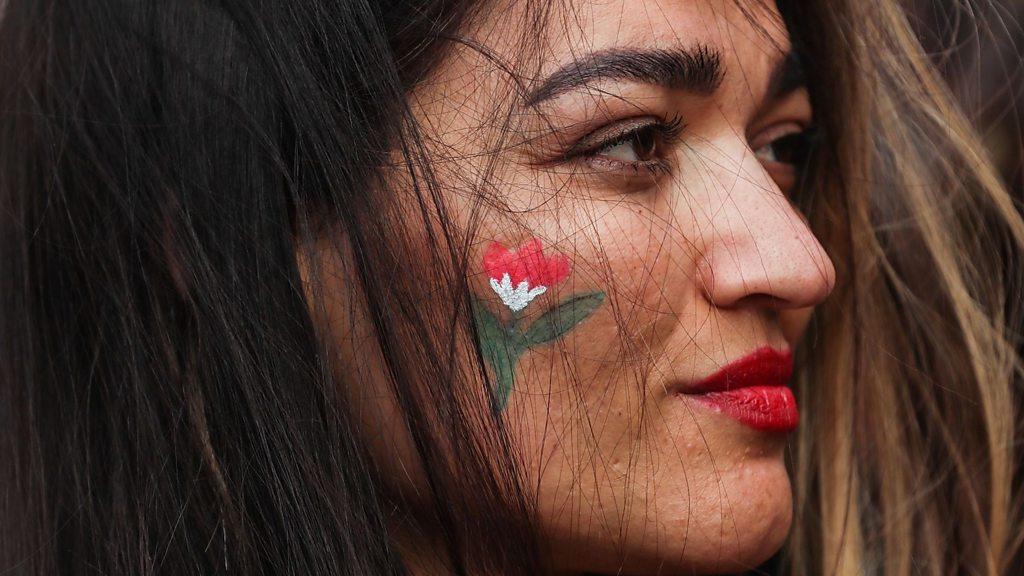Iran police force says it is investigating protester beating and shooting video
- Published
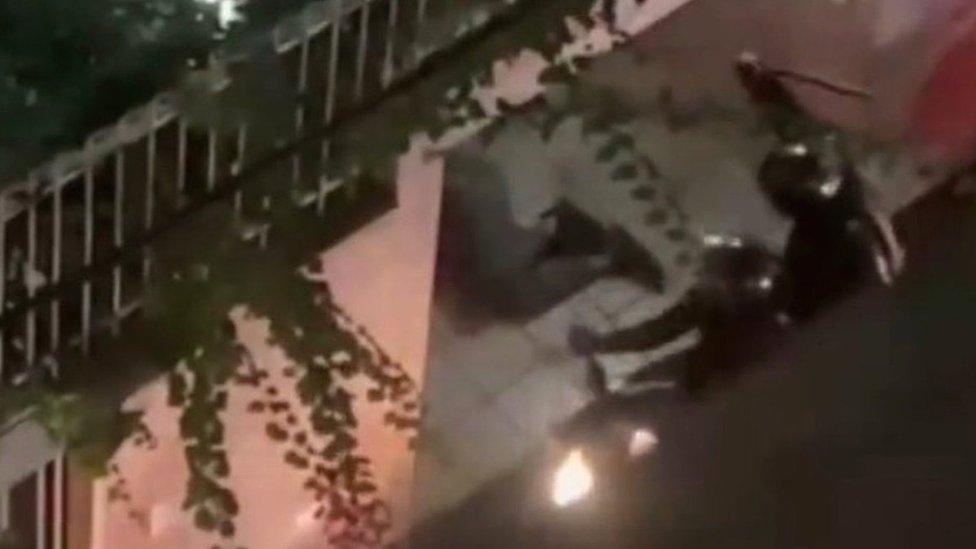
The video showed officers beating the man and driving over him with a motorbike before he was shot
Iran's police force has said it is investigating a video that shows officers severely beating and shooting an anti-government protester in Tehran.
In the clip posted on social media on Tuesday, a dozen police kick and hit with batons a man lying on a street.
The man is also run over by an officer driving a motorbike before another fires a shot-gun at him at close range.
A rights group said it was "horrific reminder that the cruelty of Iran's security forces knows no bounds".
"Amid a crisis of impunity, they're given free rein to brutally beat and shoot protesters. The UN Human Rights Council must urgently investigate these crimes," Amnesty International tweeted.
Allow X content?
This article contains content provided by X. We ask for your permission before anything is loaded, as they may be using cookies and other technologies. You may want to read X’s cookie policy, external and privacy policy, external before accepting. To view this content choose ‘accept and continue’.
A police statement published by the hard-line Tasnim news agency on Wednesday said an order had been issued to "investigate the exact time and place of the incident and identify the offenders".
"The police does not approve of harsh and unconventional treatment, the offending police officers will certainly be dealt with according to the law," the statement added.
It is not clear what happened to the man who was attacked in the incident.
The protests erupted six weeks ago in response to the death in custody of Mahsa Amini, a young woman who was accused by morality police of wearing her hijab "improperly".
There were reports that officers beat her head with a baton and banged it against the side of a vehicle. The police denied mistreating her and said she suffered a heart attack.
The first demonstrations took place after Ms Amini's funeral, when women ripped off their headscarves in solidarity. They have since spread to more than 130 cities and towns and evolved into one of the most serious challenges to the clerical establishment since the 1979 Islamic Revolution.
Norway-based Iran Human Rights said on Wednesday that at least 277 protesters, including 40 children, had been killed by security forces.
Authorities have denied involvement in the killings of protesters, instead blaming foreign-backed "infiltrators" and "terrorists". A state-run newspaper said on Monday that 35 security personnel had died during the unrest.
Watch: Iranian dancer Sarina was banned from performing but is now sharing her work in solidarity with protesters
More than 14,000 protesters have also reportedly been detained.
Among them is the anti-establishment rapper Toomaj Salehi, who a prosecutor in the city of Isfahan says has been charged with "propagandising against the political establishment", "co-operation with hostile countries" and "assembling illegal groups with the intention of undermining national security".
On Wednesday, state media published footage purportedly showing his arrest.
A man who identifies himself as Salehi is seen blindfolded and sitting on the ground. In a shaking voice, he says he "made a mistake" when in one of his own videos - apparently recorded at a protest - he told security forces to run away.
Freedom of expression advocacy group Article 19 tweeted that it was "extremely disturbed Iran state media are sharing forced confessions of rapper Toomaj Salehi under clear duress". "Salehi has done nothing but practice his freedom of expression. He must be freed," it added.
Another prominent detainee is the freedom of speech activist, blogger and Wall Street Journal contributor Hossein Ronaghi.
He has told family and friends that both of his legs have been broken in prison and that he has been on a hunger strike for the last 37 days.
Related topics
- Published2 November 2022
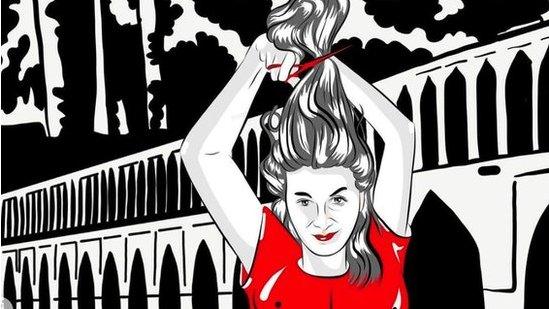
- Published1 November 2022
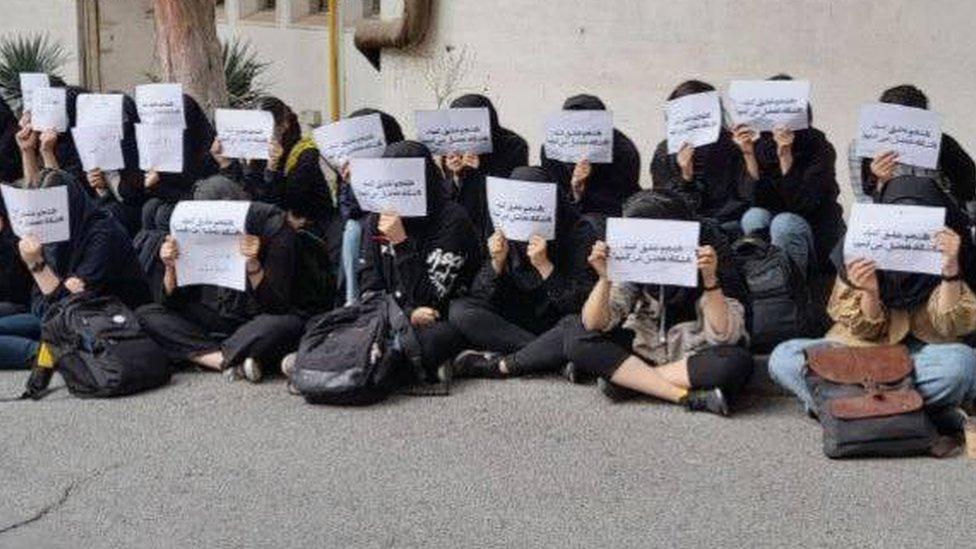
- Published31 October 2022

- Published5 October 2022
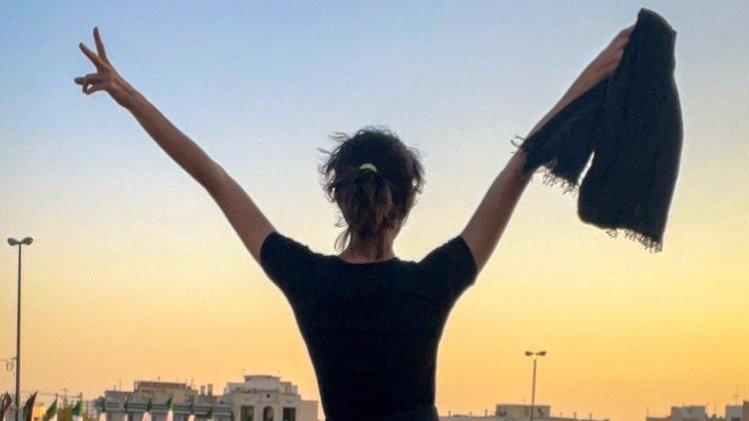
- Published14 October 2022
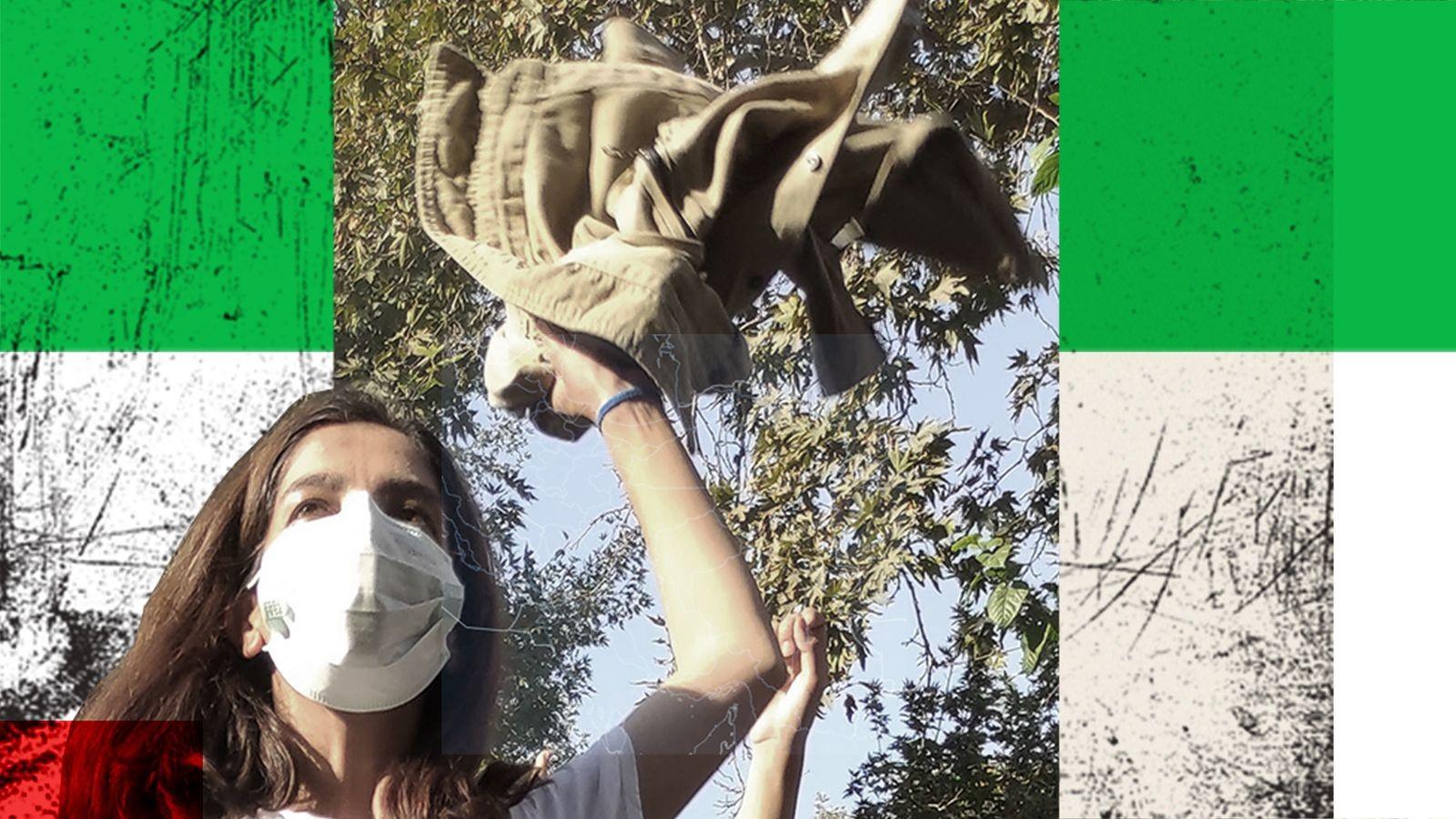
- Published6 October 2022
